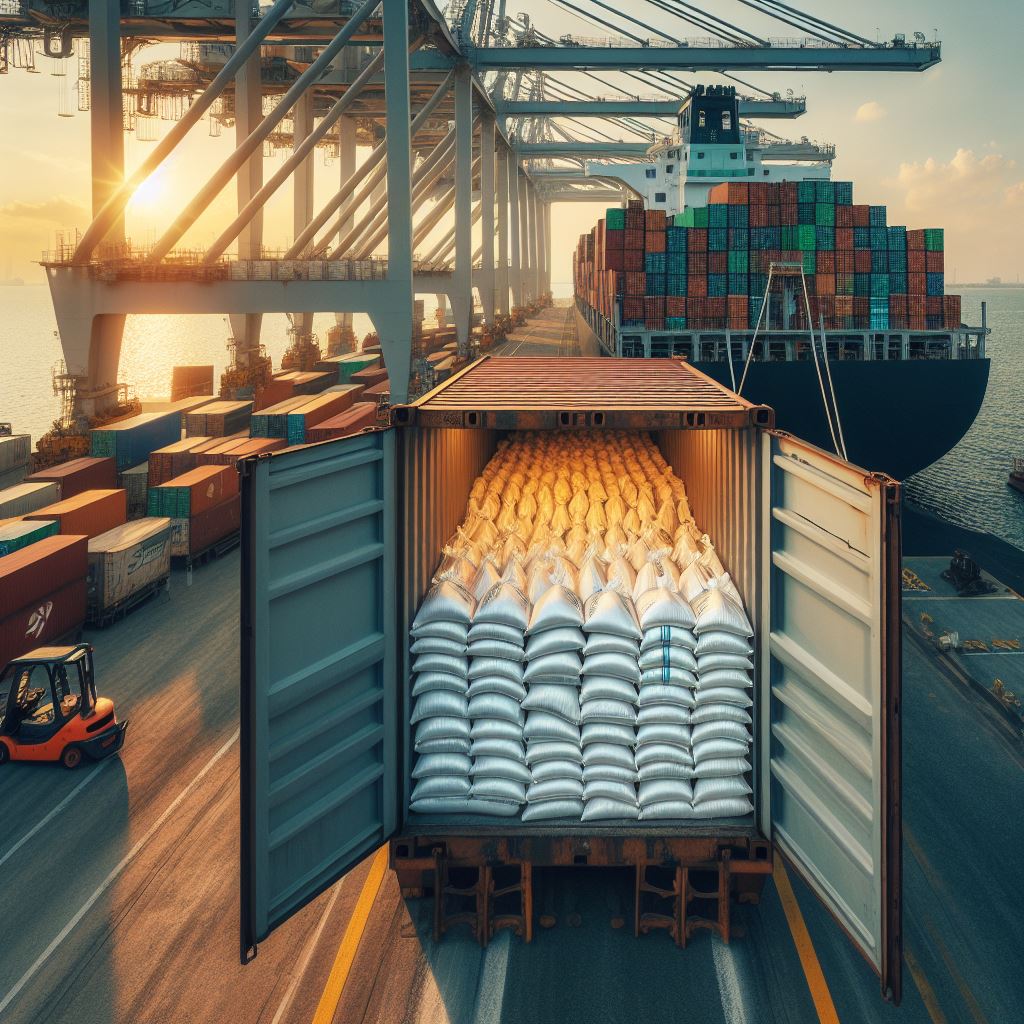
Are you ready to take a step forward in the sugar industry and ensure your company stays ahead of the game? Introducing the Brazilian Sugar Exporters Guide, your exclusive source for the best contacts in containerized sugar export. This guide is the compass that will lead your company directly to sugarcane mills, exporting cooperatives, and specialized trading companies, allowing you to negotiate directly with the market’s major players.
Exclusive Benefits:
1 – Eliminate Intermediaries and False Sellers:
Free yourself from concerns about dubious transactions. Our guide provides contact details for the top 20 exporters, ensuring you negotiate with confidence and security.
2 – Negotiate Directly with Major Players:
Establish direct connections with sugarcane mills, exporting cooperatives, and specialized trading companies. Exclusive opportunities for advantageous deals await you.
3 – Best Offers from the Brazilian Market:
Access the best sugar offers in the Brazilian market. Be competitive by negotiating directly with the country’s major exporters.
4 – Expand Your Supplier Database:
Diversify your portfolio by importing different types of sugar: Refined Sugar, Crystal Sugar, Raw Sugar, Muscovado, Demerara, etc. The guide opens doors to a wide variety of options.
5 – Import from Certified Companies:
Ensure quality by importing from certified companies with in-house production and the ability to provide customized packaging, tailored to your needs, from 1 kg to 1000 kg.
This guide is your gateway to the Brazilian sugar universe. Discover opportunities for Brown Sugar, Refined Sugar, White Sugar, Demerara Sugar, and more. With our accurate data, you can explore Wholesale Sugar options and ensure a steady supply. Import with ease and efficiency with containerized sugar.
By acquiring the Brazilian Sugar Exporters Guide, you are investing in your company’s success. This is not just a guide; it is the key to making your company more competitive in the international market. Don’t miss this opportunity.
Discover how excellence in Brazilian sugar can boost your business. Click here to access the Exporters Guide now!
Don’t miss the chance to dominate the international sugar market with the right information at your fingertips. Success is just a click away!
Global Sugar Price Reference: https://www.investing.com/commodities/london-sugar
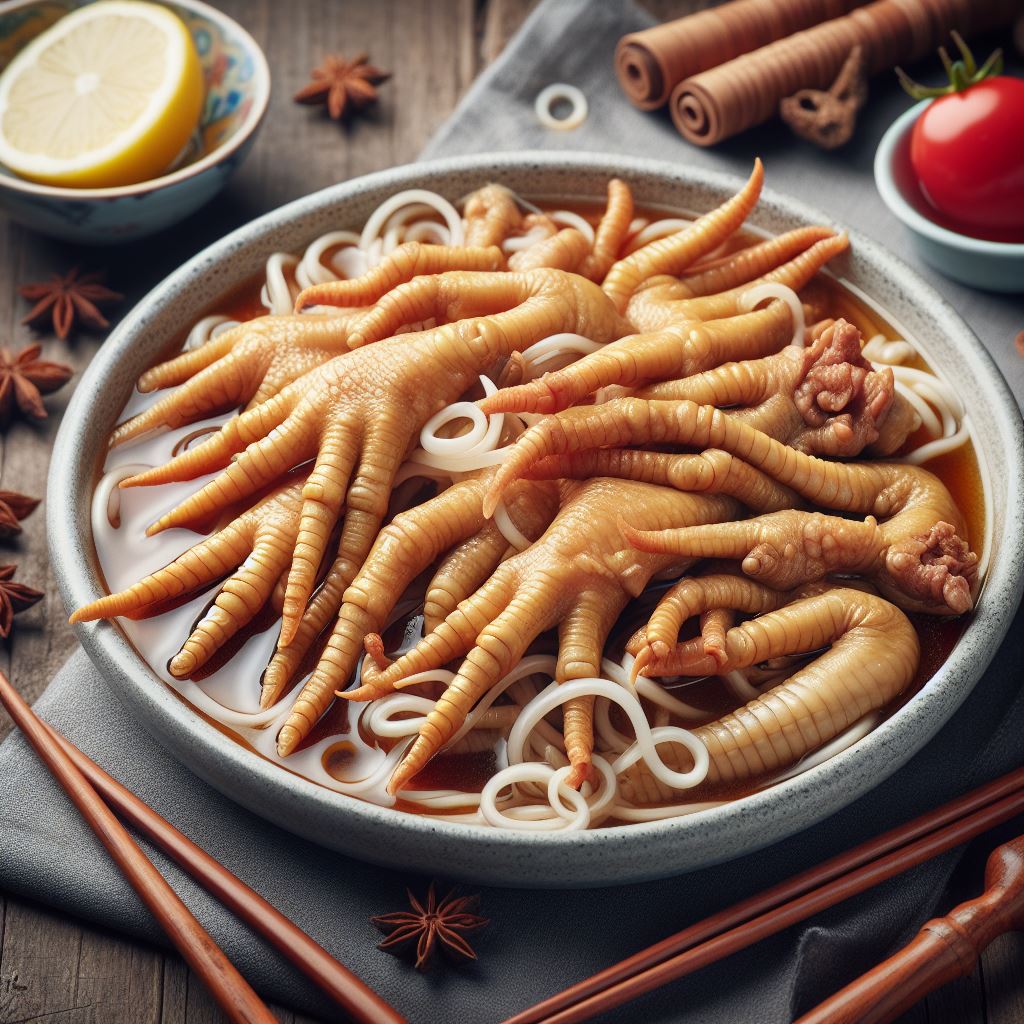
In a surprising turn of events, the international market for chicken feet has witnessed Chinese imports far exceeding the estimates of the U.S. Department of Agriculture (USDA). In a scenario that underscores the dynamism of global trade, Brazil has regained its position as the leading exporter of this product to China, accounting for 30% of the total imported in the first half of 2023.
Brazil’s share of Chinese chicken feet imports increased by more than 25% in the first half of 2024.
Explanation
China imported fewer chicken feet in 2024 due to internal economic problems, falling demand, and embargoes on suppliers who faced cases of Avian Influenza.
Brazil’s share increased due to the decline in imports from the United States, which fell by more than 55%.
Russia also increased its share, but the volume from Russia was less than half of the Brazilian product.
Brazilian exports
Brazilian chicken meat exports to the Chinese market tend to increase, as Brazil remains free of Avian Influenza.
The suspension of anti-dumping tariffs that China has maintained since 2019 in relation to some Brazilian exporters should also accelerate the increase in Brazilian exports.
Contents
While the USDA indicated that China imported just over 630,000 tons of chicken meat last year, data reveals that Chinese imports of chicken feet surpassed 650,000 tons. The USDA, which typically excludes this item from its poultry surveys, signals that Chinese imports may actually be double the officially reported figures.
In 2023, imports of this item are expected to fall below 600,000 tons, with a 12% decline in the first half compared to 2022 when China imported less than 300,000 tons.
Amid a tense relationship between China and the United States, Chinese imports of chicken feet have significantly declined. U.S. shipments have dropped by nearly 50% due to a 12% reduction in the total imported volume.
While specific numbers are unavailable for analysis, Belarus appears to have benefitted from this decline in imports, with its share doubling in the first half of 2023 compared to the total in 2022.
After years as the primary supplier of chicken feet to the Chinese market, Brazil lost this position in the last three years due to a trade agreement between China and the U.S. in 2019. However, in the first six months of 2023, Brazil has regained its position as the leading exporter, representing 30% of the total imported by China.
According to the USDA, chicken feet imported by China primarily arrive at ports in the southeast of China and are subsequently dispatched in large volumes to the southwest, where they undergo processing. Traditionally cherished by the Chinese, these products have undergone noteworthy modernization and diversification.
In addition to traditional varieties, such as pickled chicken feet, new flavors continue to be developed and successfully introduced to the market. This diversification has resulted in a remarkable increase in imported volume, with growth of nearly 250% between 2019 and 2021.
Increases in Chinese imports of chicken feet and paws, coupled with Brazil’s return as a leading exporter, highlights the dynamics of the global chicken meat market. With trade tensions between China and the US, opportunities arise for other suppliers. As new flavors and trendy products gain prominence, the chicken feet and paws market continues to evolve, with exciting prospects for the future. Don’t miss the chance to be part of this growing scene and explore our MEAT EXPORTERS GUIDE and the CHICKEN PAWS EXPORTERS GUIDE where you will find the largest exporters of chicken legs and feet in Brazil. Click here and DOWNLOAD THE GUIDE.
Download the only Chicken Paws Exporters Guide on the Market. There are 25 certified and verified exporters. Access sellers directly, without intermediaries or the risk of fake exporters.
Search terms referring to this article: Frozen Chicken Paws Suppliers in Brazil;
Frozen Meats Exporter Brazil;
Brazil Chicken Feet;
Brazil chicken paw suppliers;
Chicken Paws Export Companies in Brazil
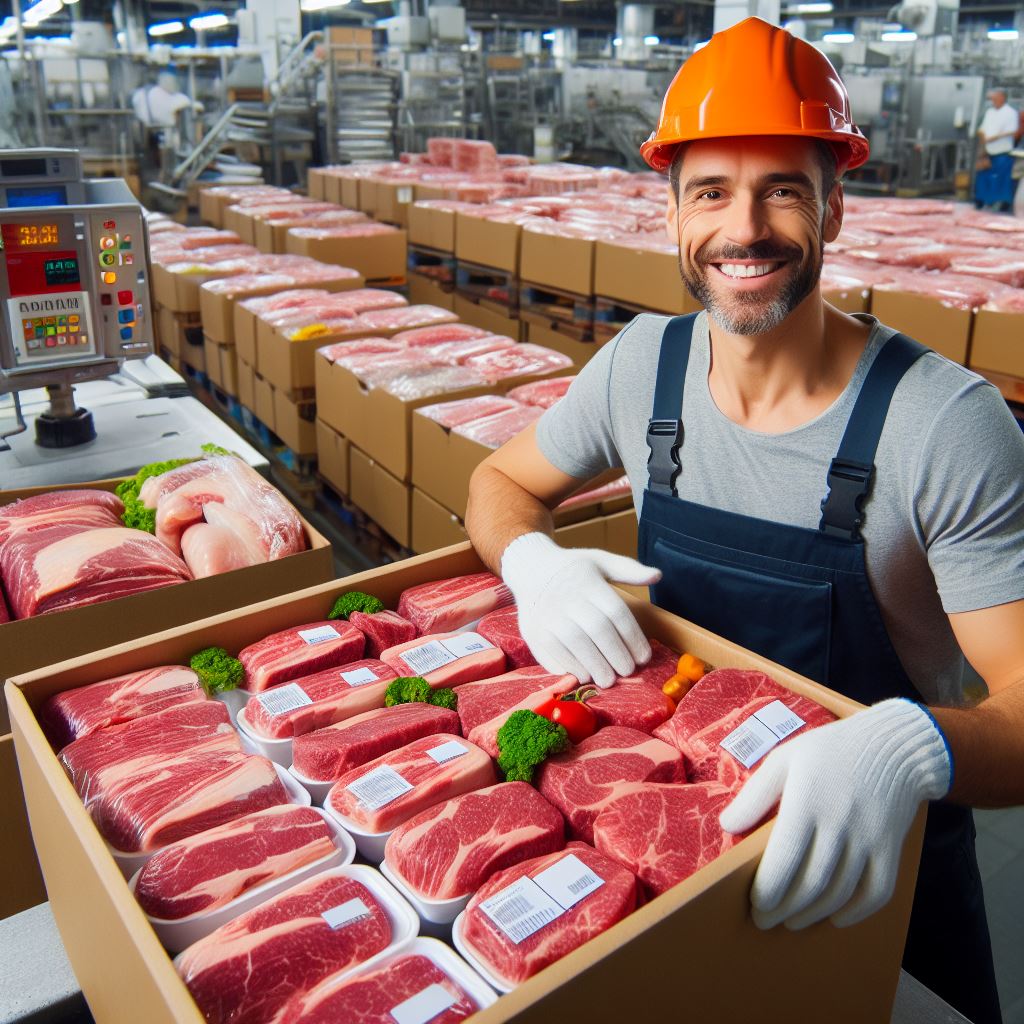
If you are a beef, chicken, or pork meat importer or a food import trading company, you are about to unveil a treasure trove of opportunities in the Brazilian meat market. Introducing the “Meat Exporters Guide” from Mello Commodity – the key to accessing the finest wholesale meats in Brazil, including halal meats, supplied by industry giants like Marfrig, JBS, and BRF Brasil.
100 Brazilian Meat Exporters: Our guide features a carefully curated selection of 73 Brazilians meat exporters, categorized as follows:
Meat Diversity: Whether it’s beef, chicken, or pork, you’ll find a variety of specialized suppliers to meet your specific needs.
Unparalleled Quality: The companies listed in the guide are renowned for their exceptional quality and world-class food safety standards.
Halal Meats: If you serve a market that demands halal meats, our guide includes certified options to meet this growing demand.
Key Industry Players: Get detailed information about industry giants like Marfrig, JBS, and BRF Brasil, who dominate the Brazilian meat market.
Rigorous Selection Process: Each exporter was chosen based on strict criteria of quality, traceability, and international market experience.
Risk Reduction: By choosing suppliers from this guide, you’ll significantly reduce the risks associated with meat imports.
Easy Contact: We provide detailed contact information for each company, making direct communication a breeze.
Technical Support: Our support team is available to answer all your questions and assist you on your meat import journey.
Save Time and Money: Avoid time-consuming searches and uncertain negotiations. Our guide is a quick and reliable solution for your Brazilian meat import needs.
Now that you understand the advantages of acquiring the “Meat Exporters Guide,” don’t waste any more time. Click the button below to explore the guide and embark on your journey of importing high-quality meats from Brazil!



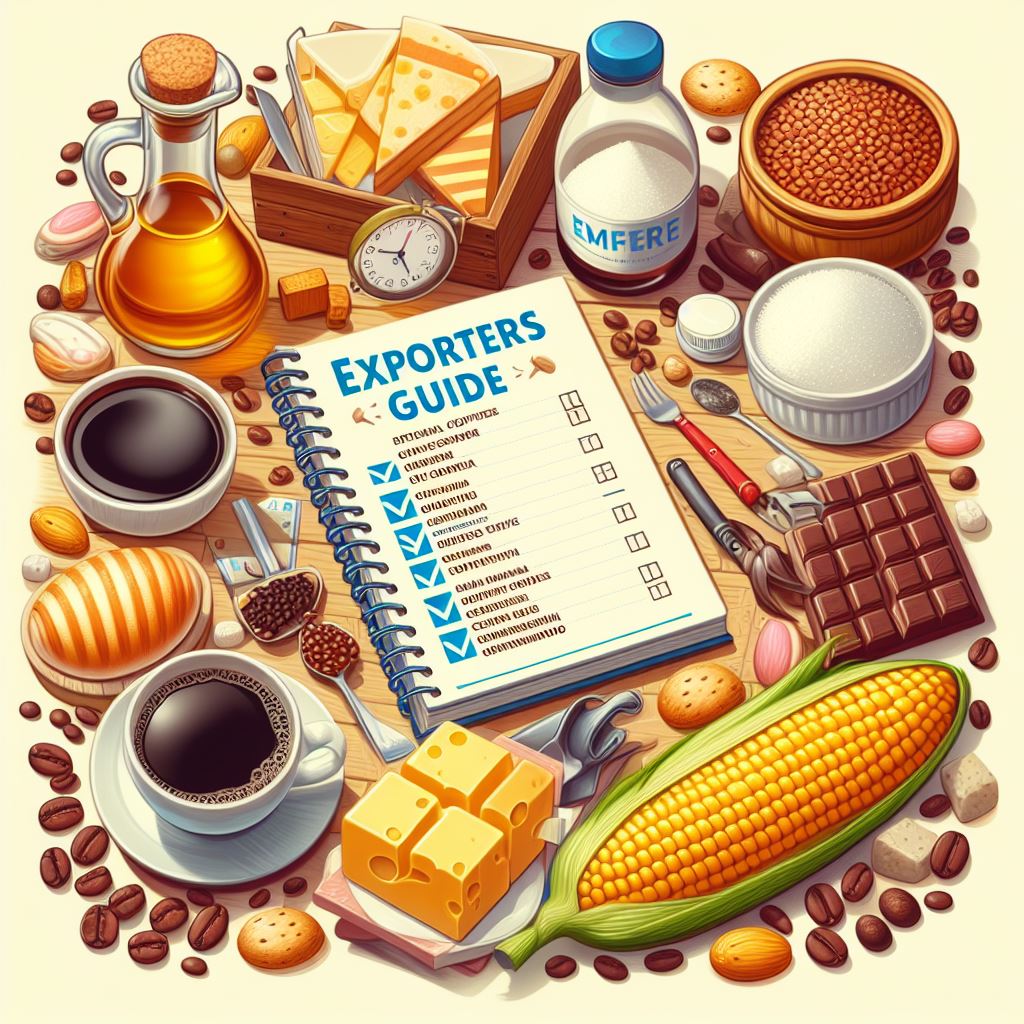
You, a food importer, are about to discover a unique opportunity that can completely transform your business. Imagine having immediate access to Brazil’s largest food exporters, eliminating intermediaries, dubious consultants and scammers, and accessing high-quality products produced in the country. All of this is within your reach, and this article will reveal how you can reach this level and obtain unparalleled competitive advantages.
A multinational food company known for its global presence in the meat industry.
Another global food company with a focus on poultry and other processed foods.
Specializes in the oleochemicals international market segment and exports food commodities like pulses, popcorn, and legumes.
Engaged in agribusiness, trading food products, and manufacturing/retail within the Brazilian market.
One of Brazil’s leading importers of gourmet food and beverages, known for its exclusive import and distribution of world-renowned brands.
A food importer and distributor, focusing on snacks, nuts, and desserts.
Brings Brazilian brands to the US, including Vovô Olavo’s guava “cascão” and Fabitos’ snacks.
An online Brazilian store and market, offering a variety of Brazilian products.
Contents
Are you tired of dealing with suppliers who don’t deliver what they promise? Do you want to avoid delivery delays and quality problems? By accessing our Brazilian Food Supplier Guides, you will have immediate and privileged access to the largest food exporters in Brazil. This means you can count on on-time deliveries and high-quality products whenever you need them.
How many times have you come across intermediaries and consultants who only increase the costs and complexity of negotiations? Enough of that! Go directly to the food exporter, you can eliminate intermediaries and go directly to the exporters. This means you’ll save money and have greater control over negotiations, getting the best deals possible.
Food quality and safety are essential for the food industry and can add value to your business. Brazil is one of the largest food producers in the world and a reference in the quality of what it produces. The foods produced and exported by Brazil meet the most varied international requirements. Our commercial team selected CERTIFIED EXPORTERS, with experience serving more than one hundred countries.
The objective is to ensure that you negotiate the import of food from companies with reliable certifications such as:
ISO 22000 | ISO 17025 | ISO 22005 | ISO 9001.2015 | ISO 28000:2007 | GLOBAL GAP | HACCP | HALAL FOOD | KOSHER | IFS | BSCA | UTZ | ABIC BRAZIL
Diversifying your supplier base is essential for competitiveness in the food market and for protecting your company in times of global scarcity.
At the beginning of the war between Russia and Ukraine, the whole world was affected by a lack of fertilizers, wheat and cooking oils. Those companies that did not have relationships with suppliers in other countries experienced major financial losses and supply crises.
Many importers of Wood Pellets and Edible Oils looked for Brazilian suppliers during this period. It was a real dispute over products.
With our guides, you can expand your suppliers and thus gain a significant competitive advantage. Prepare for periods of food crisis and strengthen your supply chain.
Every day we receive news of a client or business partner who has fallen for a scam by fake agricultural commodity sellers. In the past, even our company has fallen victim to the sugar factory, which after receiving and sealing the sugar stock, disappeared without leaving a trace.
Fake websites appear every day, perfect copies of the websites of major Brazilian meat exporters, such as: JBS, MARFRIG, AURORA, SADIA, SUINCO, etc. In a small analysis, our team found 18 fake websites, and all of them were well ranked in search engines like Google, for example.
Security in commercial transactions is paramount. Therefore, you should take advantage of the special selection of food exporters prepared by the Mello Commodity commercial team. With verified and detailed information, you can rest assured that you are dealing with legitimate and trustworthy suppliers.
Brazil is known for its natural wealth and food diversity. By accessing the correct suppliers, you will have the opportunity to purchase high-quality products directly from Brazilian producers. From coffee to meat, cooking oils to grains, Brazil offers a variety of options to meet your market’s needs.
Do not let this chance go by! Access the Brazilian Food Supplier Guides now and take your food import business to a new level. Click the link below to start transforming your operations:
Access Brazilian Food Supplier Guides
Don’t waste any more time dealing with dubious intermediaries and suppliers. Access the best Brazilian products directly and safely. Take advantage of this unique opportunity and boost your business in the food industry like never before!

Did you know that the sugar cane off-season in Brazil is about to start? It is a critical period to guarantee the supply of sugar, whether white, brown, refined, demerara or raw. Mello Commodity, your partner specializing in sugar marketing and sales, is here to alert you about possible shortages of some types of sugar and how you can take advantage of this unique opportunity to keep your prices competitive. Don’t wait any longer! Read on to understand why the time to act is now.
SUGAR CANE BETWEEN SEASON IN BRAZIL
The sugar cane off-season in Brazil is a critical period for the sugar industry. As many prepare for the end of the year festivities, sugar production declines. This is when shortages begin to become a reality for some types of sugar, such as white, refined and demerara sugar. Demand continues, but supply decreases. This combination can lead to significant price increases.
SALE OF SUGAR DURING THE OFF SEASON
A sugar shortage during the off-season is not a mere possibility, but a reality that directly impacts businesses that depend on this essential input. Sugar is an essential ingredient in many products, from foods to drinks. Therefore, any interruption in supply could affect price stability and harm your company’s profitability.
The good news is that you can take steps now to avoid the negative impacts of the sugarcane off-season. Securing sugar import contracts is the smartest strategy at this time. Mello Commodity, with its expertise in sugar marketing and sales, is available to help you secure your sugar supply. With our contacts and market knowledge, we can find the best supplier options for you, whether you are a buyer of white, brown, refined, demerara or raw sugar.
SECURE YOUR SUGAR IMPORT CONTRACT BEFORE THE CRITICAL PERIOD
Don’t wait until the offseason is in full swing! The critical period begins in December and lasts until March. During this time, sugar production is at its lowest levels, and competition for available supplies can be fierce. Securing sugar import contracts now is key to keeping your prices competitive and avoiding potential disruptions to your supply chain.
Mello Commodity is ready to help you take advantage of this unique opportunity to secure your sugar supply during the off-season. Don’t let sugar shortages affect your business and profits. Contact us today and let’s work together to ensure you have access to the sugar you need, whether it’s white, brown, refined, demerara or raw. Time is running out, and action is essential. Secure your sugar supply now and keep your prices competitive during the off-season!

Contents
The world’s largest producer and exporter of coffee, Brazil is also advancing in the specialty coffee sector and becoming popular on the international market. Monthly report from the Coffee Exporters Council (Cecafé) shows that exports of the differentiated product – which has superior quality or some type of certificate of sustainable practices – reached a volume of 4.9 million bags of 60 kilos, with an average price of US $192.80. In other words, a value 25% higher than that of green coffee, which is attracting more and more producers.
The International Coffee Organization reported that global coffee consumption reached 170 million 60 kg bags in the 2021/22 harvest. This is clear proof that the global coffee market is expanding and that the consumption of specialty coffees is also growing rapidly.
Of the 60 million bags produced in 2022, a total of 10 million were specialty coffees. They are grains free of impurities and have different sensory attributes that add value to the product. Furthermore, they must have certified traceability and comply with environmental, economic and social sustainability criteria at all stages of production.
For coffee to be classified as specialty, it must score more than 80 points on the Specialty Coffee Association’s 100-point scale.
According to the survey, Brazilian specialty coffees are currently consumed in 122 countries and the United States alone was responsible for importing more than 1 million bags, between January and October. But interest in Brazilian production has spread throughout the world and Japan is today the second largest importer of this product, with the purchase of 735.3 thousand bags, followed by Italy (559.1 thousand), Germany (554.8 thousand) and Belgium (511.1 thousand)
According to recent research by the Postgraduate Program in Administration at the Federal University of Lavras (UFLA), it was coffee quality competitions that opened doors for the development of specialty coffees in Brazil.
The research points to the Cup of Excellence (COE), one of several annual specialty coffee competitions in the country, organized by the Brazilian Specialty Coffee Association (BSCA) in partnership with the Brazilian Export and Investment Promotion Agency (Apex-Brasil) . and the Alliance for Coffee Excellence (ACE).
Held annually since 1999, it was with the creation of competitions such as the COE, that the construction of a quality standard for specialty coffees began. And it is precisely the selection, production and processing criteria that make a coffee a special Brazilian coffee. Until the 1990s, the country had a negative image as a producer of low-quality coffee.
Today Brazil is one of the main suppliers of quality coffee in the world, with specialized producers and exclusive products for extremely demanding buyers. According to the research, it was through the construction of a quality standard that guides the analysis of samples in competitions that the notion of specialty coffee was formed in Brazil.
Minas Gerais – is responsible for around 50% of national production and is one of the main sources of specialty coffees in the country. Almost 100% of the plantations are Arabica coffee, grown in four producing regions: Sul de Minas, Cerrado de Minas, Chapada de Minas and Matas de Minas.
Espírito Santo – is the second largest state producer of coffee in the country and the main producer of Canephora, however it stands out for producing regions of high quality coffee, which has already won some awards for producers such as Coffee of the Year, an important special coffee competition in the country .
São Paulo – exclusive production of Arabica, in the Mogiana and Central-West regions of São Paulo, which alternates farms with small properties and produces special coffees in specific areas.
Bahia – has two coffee producing regions: Planalto da Bahia and Cerrado da Bahia, where Arabica is grown. The Chapada Diamantina region is an important producer of specialty coffees and the municipality of Piatã has already won the Cup of Excellence
Paraná – the only production of Arabica coffee, varieties suitable for the colder climate of the region. It has stood out for the production of specialty coffees from Norte Pioneiro, which has already received IGP certification. (Geographical Indication of Origin), which guarantees the origin, production processes and some sensory characteristics of Pioneiro do Norte coffees.
Purchasing high-quality coffee beans in bulk is crucial for any business in the coffee industry, whether you own a coffee shop, roaster or retailer. The quality of the grains you purchase directly impacts the flavor and aroma of your final product, affecting the satisfaction and loyalty of your customers.
In this guide we present more than 50 COFFEE EXPORTING COMPANIES so you can buy wholesale coffee directly from Brazilian roasters, exporters and specialized cooperatives.
Download the BRAZILIAN COFFEE EXPORTER’S GUIDE and have the following objectives:
1 – Access more than 50 exporters immediately and schedule visits, request samples or start a negotiation
2 – Avoid falling into the hands of scammers. On the internet there are many fake websites, fake sellers specialized in deceiving less experienced importers.
3 – Save time and money researching coffee exporters, go straight to the source
4 – Avoid falling into the hands of scammers. On the internet there are many fake websites, fake sellers specialized in deceiving less experienced importers.
5 – You will find exporters of: green coffee beans, roasted coffee beans, powdered coffee, soluble coffee, coffee capsules, coffee blends, personalized packaging and much more
DOWNLOAD THE GUIDE TO READ ON YOUR PHONE, TABLET OR COMPUTER!
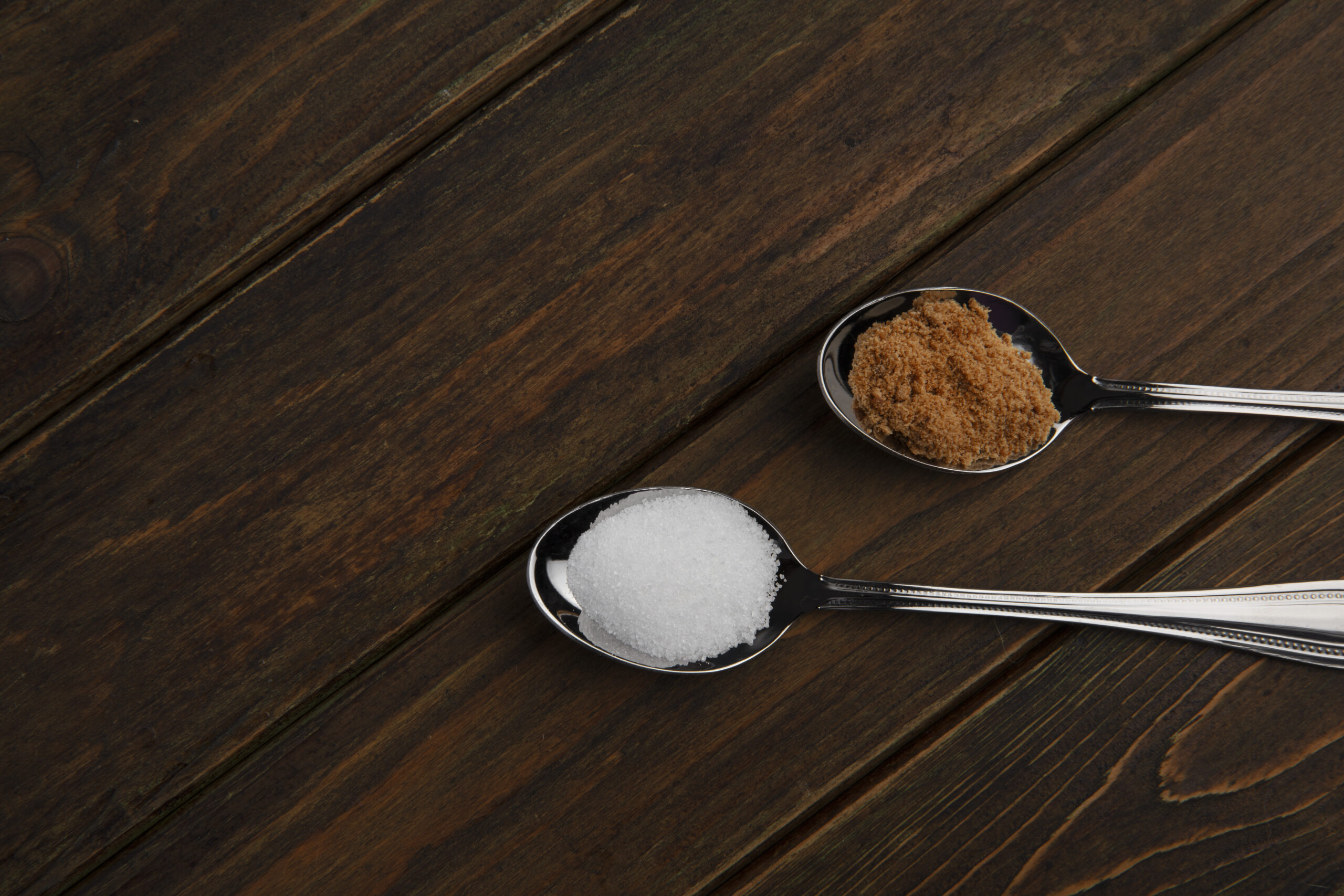
Brazil’s food export industry has stood out in several regions of the world, and one of the products that deserves to be highlighted in this scenario is sugar. Africa, a continent known for its growing demand for imported food, has proven to be a strategic market for Brazilian sugar products. In this article, we explore the types of sugar exported to Africa, the main destinations of this tropical sweetener and the contribution of Mello Commodity in this scenario.
I Sugar was the main product exported to the African continent in 2019, making the sale of the product generate a total revenue of US$ 2 billion. The 2nd main exported product was corn, corresponding to 11% of all exports to the continent, generating a total of US$ 860 million in the year.
We also highlight products such as: iron ore, paper and cardboard, beef, among others.
Contents
Brazil, one of the world’s largest producers of sugarcane, offers Africa a variety of types of sugar that meet the needs and preferences of African consumers. The most common types of sugar exported include:
1 – White Sugar (ICUMSA 45 Refined White Sugar): This is the most refined type and widely consumed around the world. It is known for its sweet and delicate taste, making it a popular choice for both domestic and industrial use.
2 – Brown Sugar (Crude Sugar VHP 600-1200): Brown sugar retains part of the natural molasses from sugar cane, which gives it a more intense color and flavor. It is often used by other cane mills for the production of Crystal and Refined sugar.
3 – Crystal Sugar (Crystal Sugar ICUMSA 150): Crystal sugar is also one of the most popular types on the market. It goes through several refinement steps, and despite being less processed than other white sugars, it also loses around 90% of its vitamins and minerals in the process. Its crystals are large and transparent and take a little longer to dilute. Like the refined, it is widely used in cooking in general. Including, it is from it that other types of sugar are made, such as refined and confectioner.
Main African Destinations for Brazilian Sugar
Africa is a growing market for Brazilian sugar products, with several countries demanding these products to meet the needs of their population. Among the main export destinations for Brazilian sugar to Africa, the following stand out:
Ghana: With an expanding economy, Ghana has stood out as an important importer of Brazilian sugar. Its food and beverage industry depends on these imports to meet domestic demand.
Somalia: Somalia is also among the African countries that regularly import sugar from Brazil. Sugar is an essential part of the staple diet in the region.
Côte d’Ivoire: Côte d’Ivoire, known for its cocoa production, is also a significant consumer of Brazilian sugar. The local food industry uses this ingredient for a variety of products.
Nigeria: Last year, Nigeria was responsible for importing 5% of the volume destined for the African continent. Its imports are concentrated in three companies authorized by the central bank, these are the only ones able to buy sugar from Brazilian suppliers.
Egypt: Egypt, with its dense and growing population, is one of the largest importers of sugar in the region. Brazilian sugar plays a vital role in maintaining the food supply in the country.
At the heart of this growing partnership between Brazil and Africa is Mello Commodity. The company stood out as a specialist in meeting the demands of the African market for sugar. With a solid reputation and years of experience, Mello Commodity has built a network of renowned clients in several African countries, including Ghana, Somalia, Ivory Coast, Mauritania and Egypt. Its dedication to quality customer service has been a crucial factor in the success of Brazilian sugar exports to Africa.
ATTENTION: Mello Commodity does not negotiate with intermediaries or pay commissions to consultants.
In conclusion, Brazilian sugar has carved out a sweet place in the hearts of African consumers. With a wide range of sugar types exported and a growing number of destinations in Africa, this partnership continues to go from strength to strength. With Mello Commodity leading the way, the future of this collaboration looks sweeter than ever.
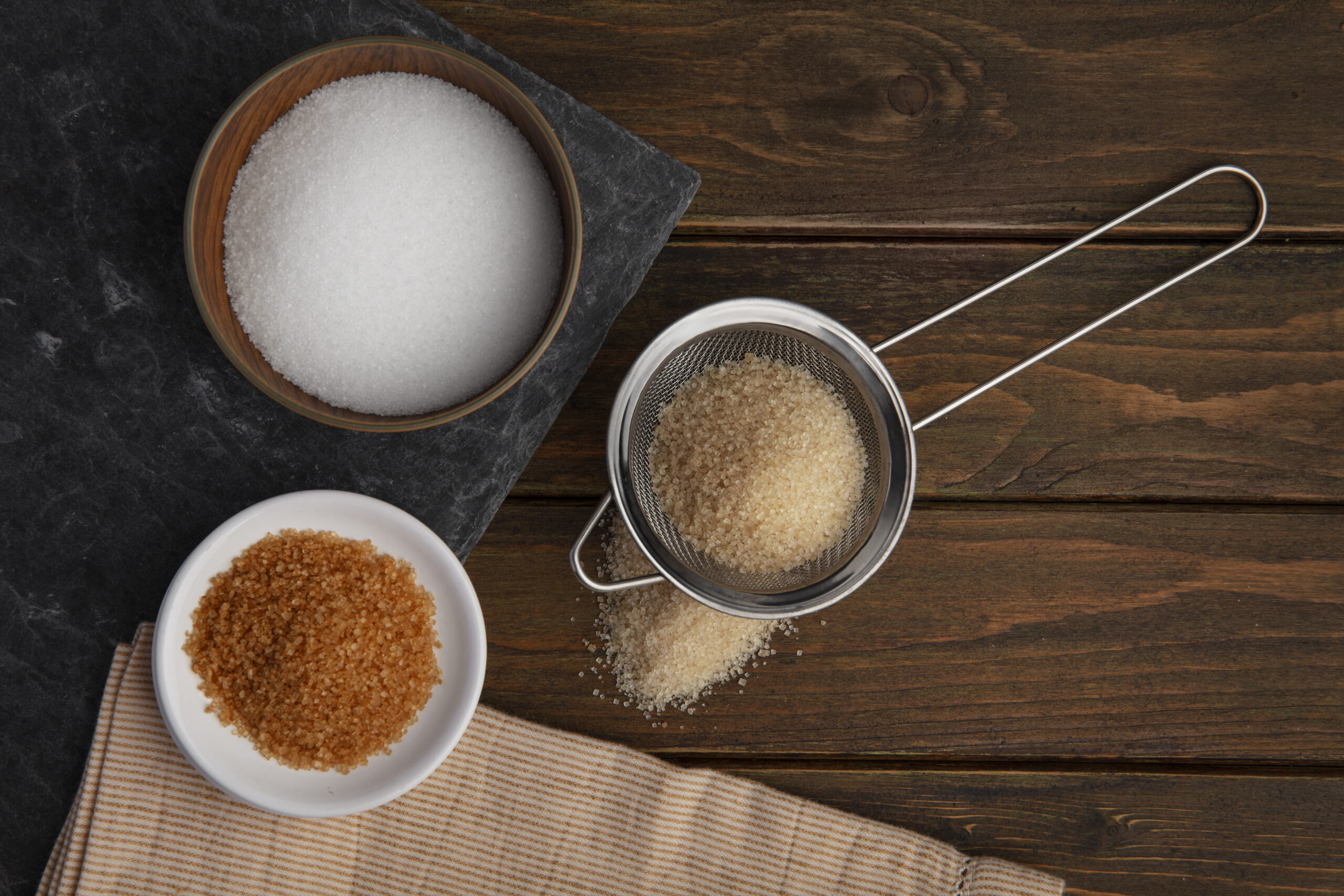
Mello Commodity is a renowned company in the commodities market, specializing in the sale of Brazilian sugar to international buyers. If you are interested in purchasing quality sugar from the main sugarcane mills through Mello Commodity, this guide will guide you through every step of the buying process, from finding the best sugar suppliers to finding out about competitive prices.
Step 1: Meet Mello Commodity – Brazilian Sugar Exporter
Before making a purchase, it is important to get to know Mello Commodity in detail. Visit the company’s official website at www.mellocommodity.com.br for complete information about its high quality Brazilian sugar products, its partnership with the main sugarcane mills and its competitive prices. You will also find contact details for direct support from the Mello Commodity team, specialists in sugar
Step 2: Identify your Brazilian sugar purchasing needs
Clearly define your Brazilian sugar purchasing needs. Determine the type of sugar, desired quantity, quality specifications, packaging and other important factors related to sugar prices and suppliers. The more specific you are, the better your chances of finding the right sugar suppliers for your needs
Step 3: Contact Mello Commodity’s Brazilian sugar suppliers
Get in touch with the Mello Commodity team through available channels, such as email sales@mellocommodity.com.br, WhatsApp chat + 55 21 976 723 023 or fill out the quote request form at https://mellocommodity .com.br/quotation/
Step 4: Receive competitive proposals from Brazilian sugar suppliers
Based on the information provided, Mello Commodity will prepare customized proposals from Brazilian sugar suppliers that align with your needs. Proposals will include important details such as competitive sugar prices, favorable payment terms and flexible delivery times. Carefully read the proposals and resolve all your doubts to select the best sugar supplier for your company
Step 5: Close the deal with the chosen exporter
After reviewing and agreeing with the terms of the sugar supplier’s proposal, you must confirm your PURCHASE INTENT by sending an ICPO, the Supplier will respond with confirmation of the offer by sending an FCO that must be signed, stamped and returned along with proof of funds which can be either an RWQ or BCL.
After completing this step you will receive a SPA [ supply contract] . Sign the contract or commercial agreement as provided by Mello Commodity and provide all additional information requested to confirm the purchase of Brazilian sugar. Make sure you meet agreed document submission payment deadlines and establish clear and ongoing communication with the supplier to ensure a successful partnership.
Step 6: Enjoy the quality of Brazilian sugar provided by Mello Commodity
After closing the agreement, the EXPORTER will take care of the logistics and delivery of the sugar as agreed. You’ll receive updates on delivery progress and have peace of mind knowing you’re sourcing high-quality sugar from Brazil’s top sugarcane mills. In case of any problem or doubt, Mello Commodity will provide after-sales support to guarantee your complete satisfaction.
Purchasing high quality Brazilian sugar through Mello Commodity and its trusted suppliers is a streamlined process when you follow these steps. By getting to know the company, identifying your specific needs, contacting the team, receiving competitive proposals from Brazilian sugar suppliers and closing the deal with your chosen supplier, you will ensure a successful purchase. Enjoy the quality of Brazilian sugar supplied by the main sugarcane mills in Brazil and strengthen your business with a reliable partnership with Mello Commodity, specialists in sugar exportsm
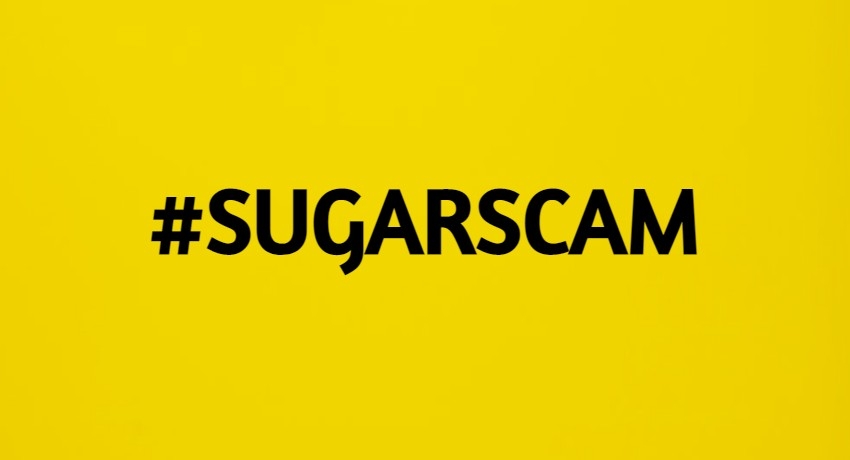
IMPORTANT ALERT FOR SUGAR IMPORTERS – Attention! The scammer will use all technological resources to deceive you. He has an extensive network of collaborators who work in banks, governments and even within some real exporters. Read this article until the end and you will understand all the risks that your company runs when starting an import negotiation.
In the world of In international business, it is crucial to always be on the lookout for potential fraud and deceptive schemes. Unfortunately, some unscrupulous individuals take advantage of buyers’ lack of experience to try to make fraudulent gains. Recently, cases of fake profiles, websites and emails aimed at deceiving sugar importers were identified. This article aims to alert importers to these deceptive practices and provide important information to avoid falling for scams..
According to publications, the scammer creates fake profiles on online platforms, creates fraudulent websites and sends fake emails, all with the aim of establishing an appearance of credibility and trust. They can use logos, contact information and even forged documents to convince importers that they are a trustworthy company. However, behind these facades hide scammers who intend to steal money and personal data.
To avoid falling for this type of scam, it is essential that sugar importers adopt security measures and be aware of the warning signs. Here are some important recommendations:

It is critical that sugar importers are vigilant and up-to-date on fraudulent practices in their industry. Be aware of information shared in trusted publications such as the links provided, and share this information with other importers so that everyone is aware of scams in circulation.
By taking the precautions mentioned above and carrying out adequate due diligence in their business dealings, sugar importers will be better prepared to prevent fraud and protect their interests. Remember that safety and security are critical to success in international business.
Find verified suppliers here for:
Sugar in Containers
Coffee
Cooking Oil
Chicken, Beef or Pork Meat
Chicken Paws
Halal Products
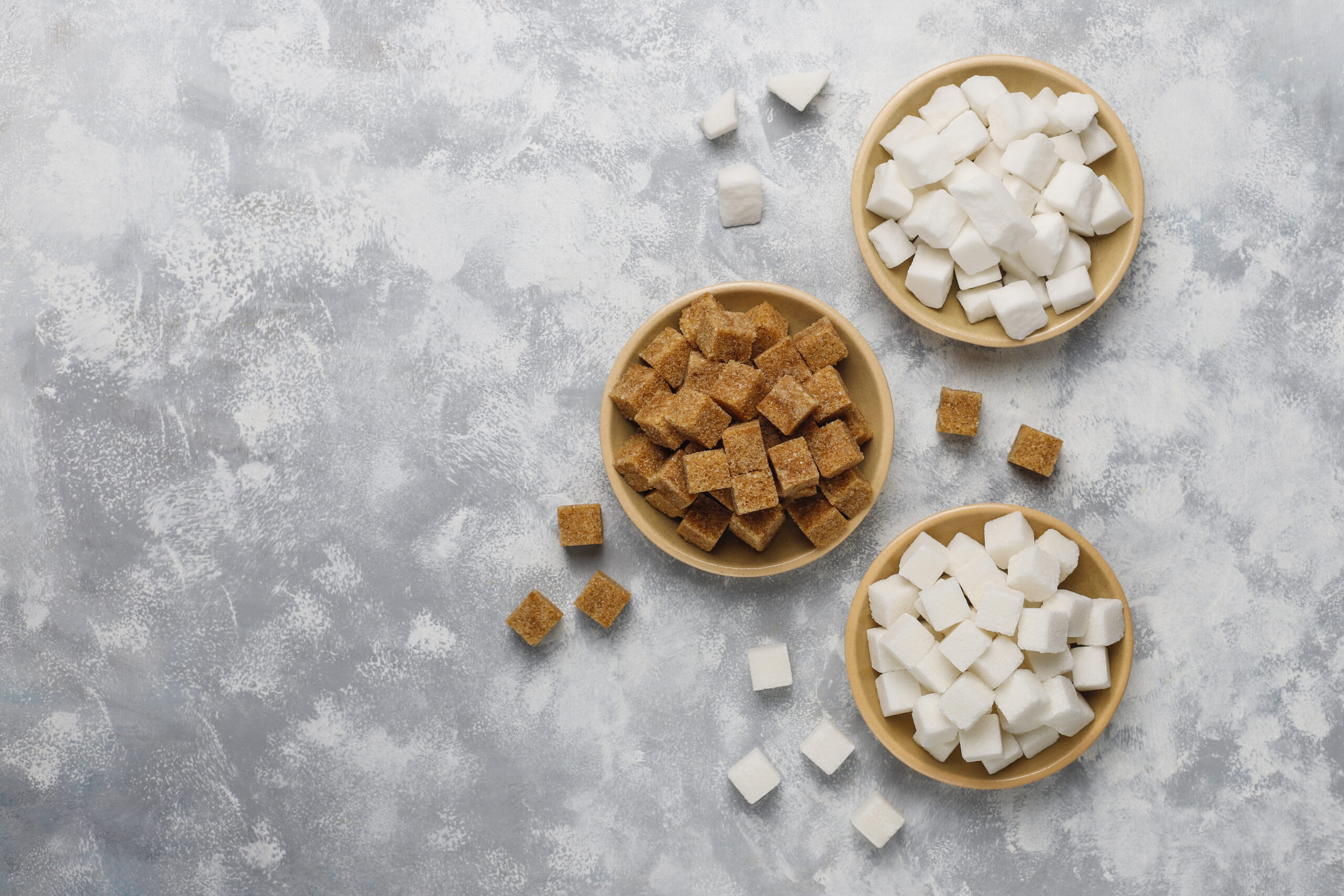
Every day at Mello Commodity, we start the day with an email box full of quote requests sent by disqualified companies.They want to buy White Sugar and Brown Sugar in large volumes, but they have never imported a single bag of sugar.
DISQUALIFIED COMPANIES: These are companies that have never imported sugar, they really want to make importing feasible, but are not qualified to complete the purchase. That is, they have a lot of intention but little qualification.
In general, they are companies that already operate in the international market with the import of vegetables, fruits, agricultural pesticides, oil, etc., but that are unaware of the international market for the sugar commodity.
What are market entry barriers?
Barriers to entry constitute the set of factors that make it difficult for a company to start operating in a given segment or market. The main entry barriers are: – financial (high initial costs); – technical (goods/services that require too much specific knowledge);
Legal barriers – law, regulation, policy, measure or governmental practice that imposes restrictions on sugar imports. The countries that import the most sugar in the world impose some kind of restriction
Technical barriers – To become a sugar importer, you need to know the product’s specification at the very least. Harvest and off-season periods, supply and demand data, average market price. Purchase modalities, ICC rules, Incoterms, Etc. Without it you’ll look like a court jester trying to look like a king.
As soon as they receive your email requesting a quote the supplier will know if you are a buyer or a jester thinking you are a buyer.
A buyer negotiates based on technical specification, certifications, product proof, supply contracts structured with safe terms and known by international trade.
Financial barriers – The importer needs to keep in mind that he must be able to create a financial structure to make the purchase viable, either with his own resources or financed by banks. This means that cash or credit needs to be available before the negotiation and purchase even begins.
Your company should be able to prove funds [ RWA or BCL ] right at the beginning of the negotiation. This will demonstrate seriousness and professionalism. Without being able to prove purchasing power, your company will be perceived as adventurous, irresponsible, inconsequential…
95% of companies that request a quote from our firm are not financially ready to buy.
If you enter into a sugar buying trade without a defined financial structure, then you are an adventurer. He is presenting himself as a buyer, without having the slightest ability to buy.
Other financial barriers that can ruin your plans to import sugar.
Your company needs to be able to issue a financial instrument through one of the top 50 banks in the world. It means that even if your bank is the biggest in your country, even if your bank has an AA rating in international trading, if it is not ranked among the TOP 50, your financial instrument will be refused and the trade will be cancelled.
Note: The financial instrument can be ISSUED or CONFIRMED by a correspondent bank that is TOP 50. – DOWNLOAD THE OFFICIAL 2022 LIST
Initial costs – Every import operation has initial costs that start with planning the import. Before thinking about importing sugar, your company needs to make an IMPORT COSTS SPREADSHEET where costs that occur before, during and after importation will be entered.
1 – Costs with the purchasing, finance and operation team involved in the acquisition of the product
2 – Costs with import licenses, government registration fees, customs, etc.
3 – Estimate of the cost at the port of destination, such as: local taxes and fees, unloading, customs clearance, storage and distribution of the product.
4 – Product acquisition costs, such as costs with bank fees for issuing financial instruments, lawyers, cost of travel to accompany product shipment, etc.
The sum of all these costs may reveal to your company that importing is unfeasible and that you will incur losses instead of profits. This needs to be discovered before you have the beautiful idea of importing and not later when the product is already at the port of destination.
No more adventurers and middlemen acting like crazy in search of the pot of gold at the end of the rainbow. This market no longer supports so many amateurs and adventurers.
If your company is going to import sugar for the first time, do not ignore these guidelines. Structure your company before starting a negotiation.
If you are an intermediary, facilitator, consultant, study this market, deepen your knowledge, educate and help your client to plan the import operation before going out there asking for quotes from every company you find on the internet. Be professional.
Commercial immaturity, lack of knowledge, lack of responsibility and the belief that they will get rich by importing sugar are leading companies to act in an adventurous and even dishonest way. Lying and deceiving suppliers when they pretend to be QUALIFIED when in reality they are not even ready to request a quote.
Is your company qualified and has an immediate demand?
Request a quote HERE.
Is your company still not qualified?
Study, plan, structure the logistics and the financial part and then, only after checking everything, request a quote from our team through WhatsApp Comercial + 55 21 976 723 023
REFINED WHITE SUGAR
It is possible to import Refined White Sugar Icumsa 45 and Cristal Sugar Icumsa 150. With orders from 12500 tons in bulk.
Most of the orders we receive on the site are for this type of sugar, but Brazil exports much more VHP 600-1200 raw sugar.
BROWN SUGAR VHP 600-1200
Brazil is the largest exporter of Brown Sugar in the world and this product is in high demand, as sugar mills in other countries can produce various types of sugar with high specifications from it.
It is possible to fulfill orders in bags of 50 kg and 12500 tons in bulk.
© 2017 Construction Realestate Theme
Design & Developed by Buy WordPress Templates Return To Top
